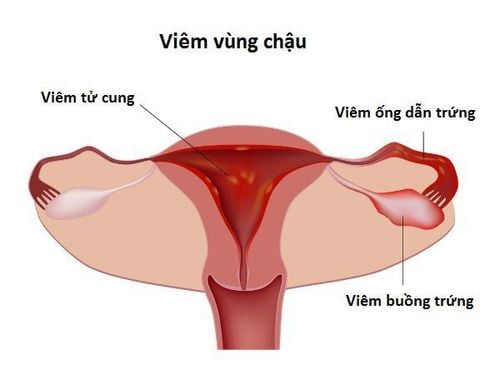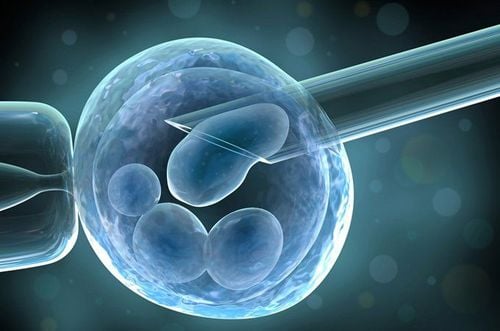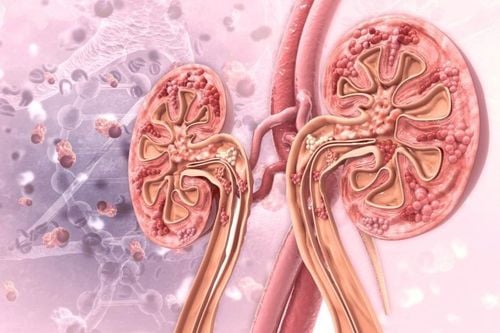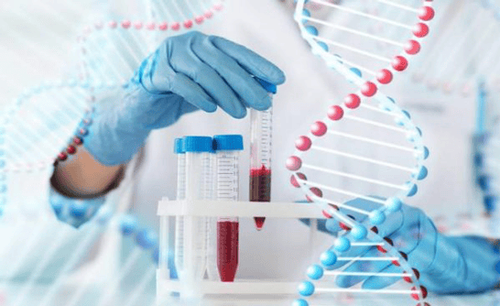This is an automatically translated article.
This article is professionally consulted by Master, Doctor Nguyen Thi Cam Van - IVF Lab Doctor - Reproductive Support Center - Vinmec Times City International Hospital.In vitro fertilization or IVF is a method of infertility treatment that has been started since 1978. IVF technology is increasingly developed and achieved many achievements. In particular, the use of embryo glue during embryo transfer is an important step to improve the success rate of IVF treatment cycles.
1. How is the embryo implantation process?
Embryo implantation will take place from 6-12 days after ovulation. This period is also equivalent to the period from 1 to 6 days after the blastocyst is transferred to the woman's uterus during the IVF procedure.Embryo implantation is quite complex, and many events take place during this time. Scientists continue to study the implantation process of embryos and initially believe that the communication between the embryo and the woman's uterine lining plays a very important role in the success of the implantation process. nest.
According to researchers, the success rate of in vitro fertilization is only about 40-50%. And up to 50% - 70% of IVF failures are related to the implantation process of the embryo.

Tỷ lệ thụ tinh trong ống nghiệm thành công phần lớn dựa vào quá trình làm tổ của phổi
Hyaluronan was discovered by scientists during research on the reproductive system. This substance occurs in abundance in the follicular fluid, tubal fluid, uterine fluid, and the uterine lining. The scientists also found that, during early embryonic development and embryo implantation, the concentration of hyaluronan increased.
Hyaluronan is a high molecular weight, high viscosity substance. Scientists believe that the presence of this substance in the first embryo transfer environment will help limit the movement of embryos in the uterine cavity. Therefore, Hyaluronan helps to increase the ability to implant and improve the success of the embryo transfer cycle of IVF.
Not only that, they also discovered that the receptor for hyaluronan on the surface of the blastocyst and the lining of the uterus is also present during the embryo's implantation period. Therefore, scientists have come to the conclusion that hyaluronan has an important role in the communication process between the embryo and the woman's uterine lining. Hyaluronan is the substance that connects and affects the implantation process of the embryo on the uterine lining.
2. What is Embryo Adhesion in IVF?
Embryo glue is a medium containing a high concentration of Hyaluronan molecules, which help to bind during embryo implantation. Currently, EmbryoGlue or EmbryoGlue has been widely used for the treatment of infertility by in vitro fertilization around the world.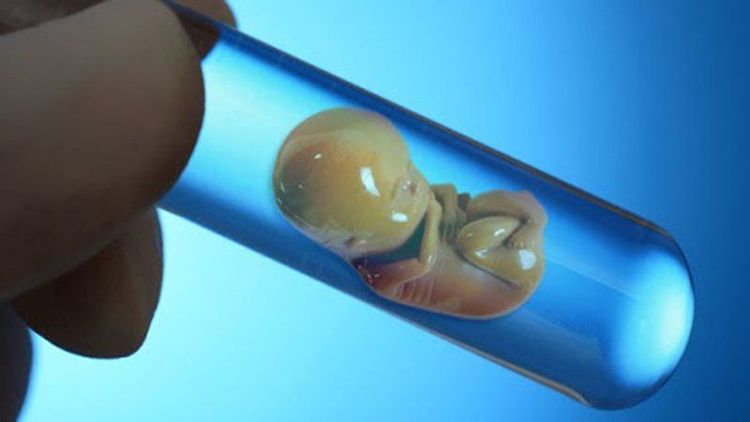
Keo dính phôi được sử dụng rộng rãi cho quá trình thụ tinh trong ống nghiệm
Many studies have compared the success rates of IVF cases. In particular, when comparing the embryo transfer process using embryo glue and the cases of embryo transfer using only normal culture medium, the implantation rate increased to 50.9% and the clinical pregnancy rate increased. to 70.9%.
Embryo glue medium shows its superiority in improving implantation rate, clinical pregnancy rate and live birth rate in patients using in vitro fertilization method.
In addition, experts also confirmed that embryo glue has positive effects not only on day 3 embryos but also with day 5 embryos. At the same time, embryo glue is also effective in cases of women who have failed to implant many times and women over 35 years old. The survival rate of the group using the embryo glue medium also increased by 8% compared to the cases of conventional in vitro fertilization.
3. How does the process of using preform glue take place?
During embryo transfer, a small amount of hyaluronan is usually aspirated, and the same embryo is inserted into the woman's uterus. Embryo culture medium will be used in the process of transferring embryos into the patient's body.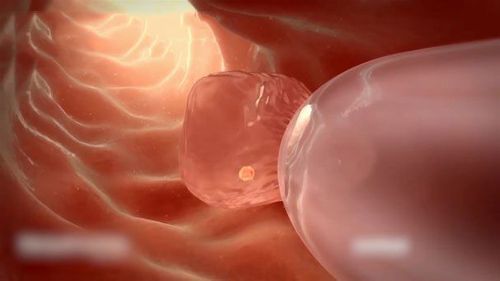
Cần tạo môi trường nuôi cấy phôi khi chuyển phôi vào cơ thể người mẹ
Embryonic glue is an important invention of in vitro fertilization. It not only helps to reduce the manipulation of the process but also improves the success rate of this method. Therefore, embryo glue is the medium being commonly used in the current in vitro fertilization method.
Vinmec IVF Reproductive Center is the address of infertility - infertility treatment chosen by many couples. So far, the Center has performed fertility support for over 1000 infertile couples with a success rate of over 45%-50%. This rate is equivalent to developed countries such as the UK, USA, Australia,...
The center gathers a team of leading experts in the field of obstetrics and gynecology nationally and internationally, trained in centers leading in the world such as in the US, Singapore, Japan, Australia and famous fertility centers in the world. Vinmec Fertility Center can perform most of the advanced assisted reproductive techniques in the world such as: classical IVF, ICSI (intracytoplasmic sperm injection), embryo freezing, culture - embryo transfer, support embryo rupture, reduce multiple pregnancies...help realize the dream of parenthood of hundreds of families across Vietnam.
Master. Doctor. Nguyen Thi Cam Van has experience and strength in performing specialized techniques on assisted reproduction in the IVF lab. Before being an IVF lab doctor at the Reproductive Support Center, Vinmec Times City International Hospital, he had obtained foreign training certificates such as: Certificate of Advanced Reproductive Technology at IVF GangNam Cha, Korea, Certificate of Quality Management of IVF lab at Origio lab, Denmark
To learn about assisted reproductive methods at Vinmec International General Hospital, you can contact Contact Us Vinmec Health System nationwide, or register online HERE.





